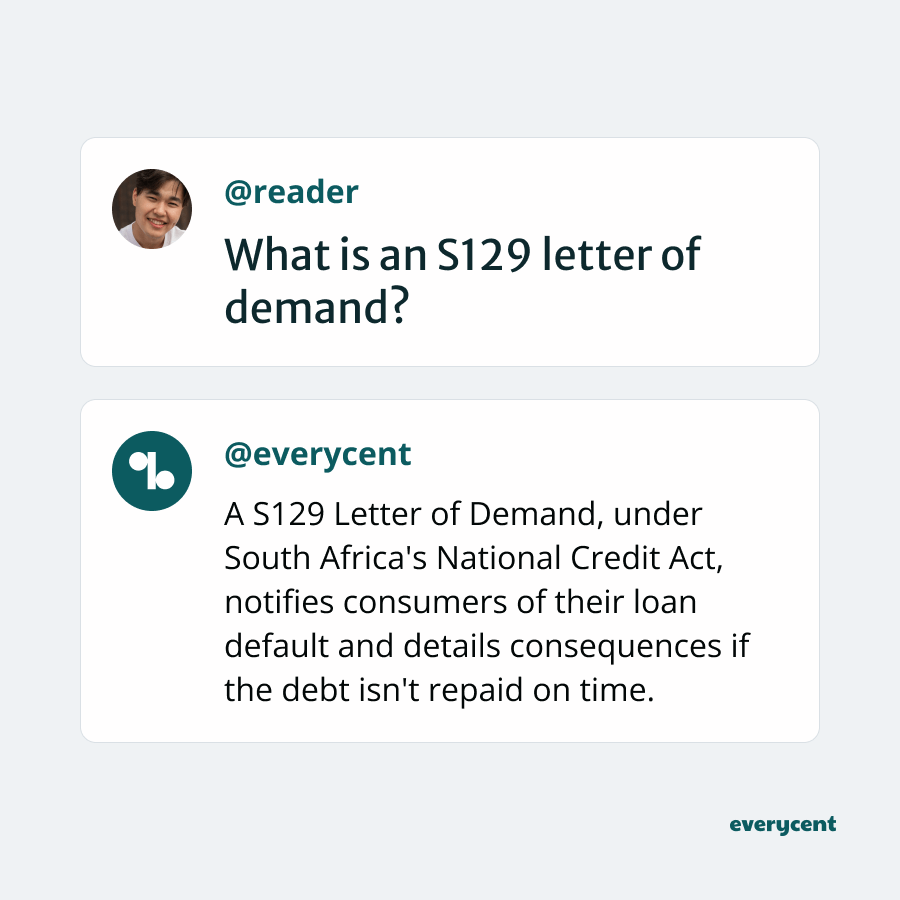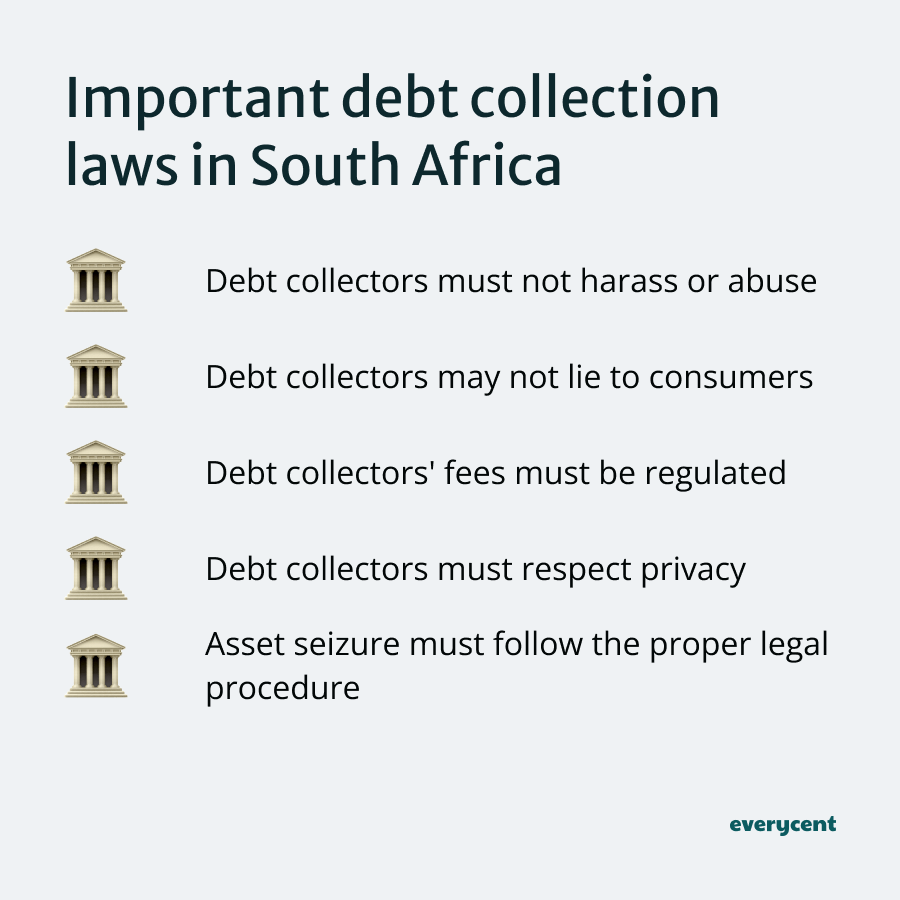
There’s a right way to deal with debt collectors. Find out how to protect yourself, learn your rights, and discover your options as a South African consumer.
Written by Reviewed by
Thanks for checking out this post. We help South Africans manage debt, protect their assets, and restore their finances.
to learn more.Debt collectors have to play by the rules.
Get to know these rules, and you can protect yourself from debt collection.
Here are your rights and how to deal with debt collection.
The good news is that the debt collection process falls under the National Credit Act. This means it’s a legal process, and creditors and debt collectors must play by the rules. South African consumers have the right to a fair process.
And that’s the secret to dealing with debt collectors.
Quick recap: Debt collection is the process creditors follow to collect outstanding or overdue debt from borrowers. Debt collection usually starts after the debtor (person who borrowed money or has an account) fails to make scheduled payments and gets a Section 129 Letter of Demand .

Most of the time, it involves a debt collector, either an individual or an agency, who has to ‘collect’ the money that’s owed.
Okay, now let’s look at some of the laws that come into play and the consumer rights that go with them.
First up is The Debt Collectors Act.
In South Africa, debt collectors are governed by the laws and regulations set under the legislation of The Debt Collectors Act of 1998 .
It ensures that debt collectors recover debts legally and ethically. It also governs consumer rights during the debt collection process.
Here are a few important laws.

Struggling to pay your debt bills?
Check to see if you qualify to lower your debt instalment and free up money for other expenses.
Consumers have rights, and the only way to protect yourself is to get to know them.
Here are a few debt collection laws that stand out:
📖 Bonus reading:
It’s worth mentioning that debt collectors must be registered.
To verify whether a debt collector is legit, try searching the Council for Debt Collectors (CFDC)’s active register . The CFDC regulates the conduct of registered debt collectors in SA.

Now, what if a debt collector isn’t sticking to the laws mentioned earlier?
Well, then they should be reported.
Debt collector misconduct or harassment should be reported to the National Credit Regulator (NCR). The NCR encourages consumers to report companies or lodge complaints by sending the complaint to complaints@ncr.org.za or calling 0860 627 627, after first lodging a complaint with their credit provider or debt counsellor .
The National Credit Regulator (NCR): Oversees the compliance of debt collectors with the National Credit Act and related regulations.
This is the best place to report most issues with debt collectors. If you believe a debt collector has broken any rules or engaged in harassment, you can file a with the NCR.
Other channels for filing complaints include the Credit Ombudsman and the National Consumer Commission (NCC) .
The Credit Ombudsman : Handles disputes involving credit agreements.
The National Consumer Commission (NCC) : Deals with broader consumer rights issues, including debt collection practices.
When filing a complaint, it’s vital to provide detailed information and any available evidence for an effective investigation and resolution.
Lastly, the Council for Debt Collectors (CFDC) regulates the conduct of registered debt collectors in South Africa. While the CFDC isn’t typically the primary or direct avenue for consumers to report issues related to debt collection, it may be worth submitting a complaint to the CFDC.
You can do so via their website www.cfdc.org.za , emailing info@cfdc.org.za or calling 012 804 9808.
Harassment, misconduct, and illegal practices are big deals.
Report it. It could help someone else, too.
Now, let’s cover how to defend yourself.